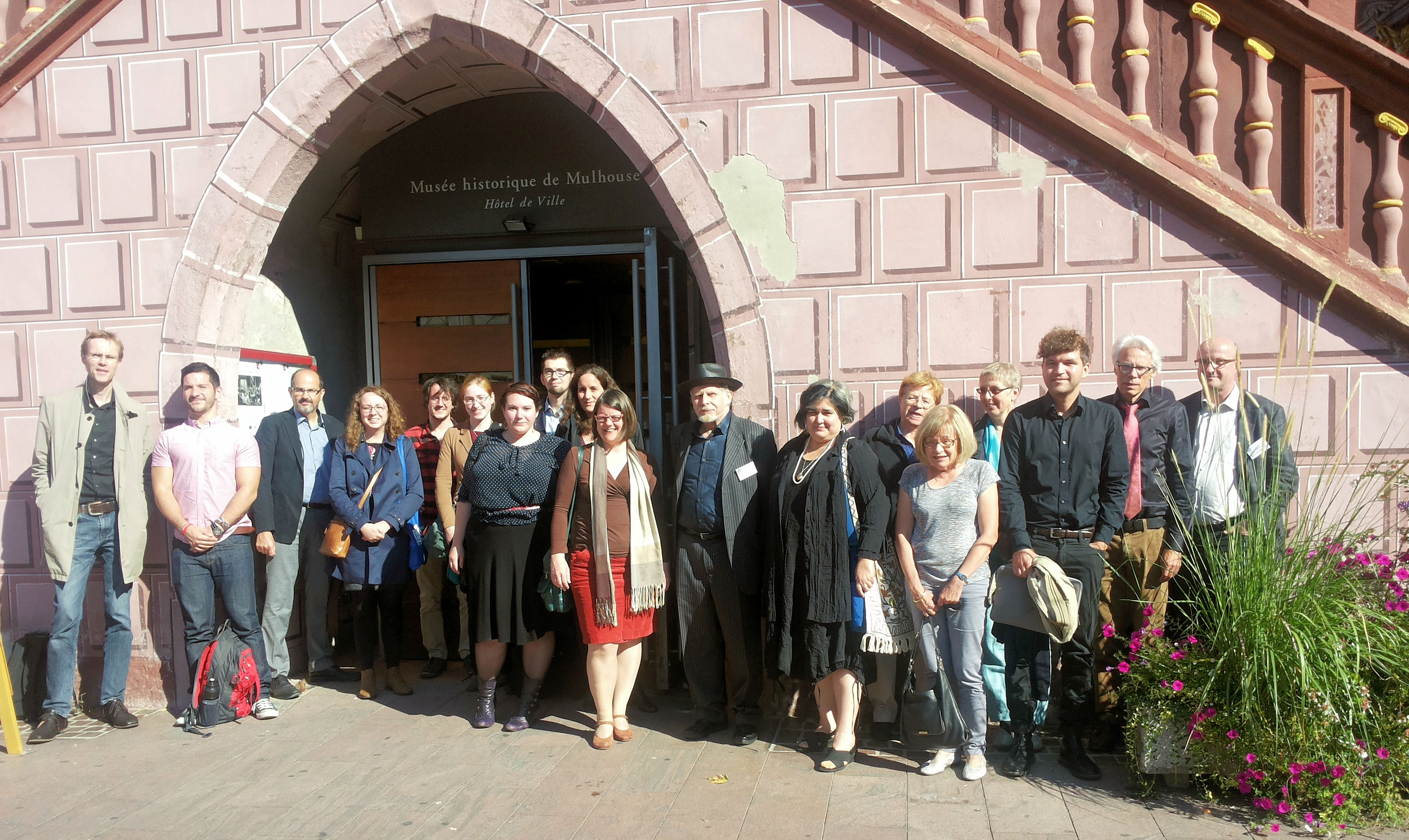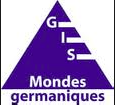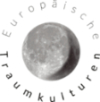Activities
Theorizing the Dream /
Savoirs et théories du rêve
Bernard Dieterle (Université de Haute-Alsace) /
ILLE (Institut de Recherches en Langues et Littératures Européennes)
Mulhouse, 9.–12. September
2015
The first part of the congress (September 9–11, organised by the ICLA
Research Committee »DreamCultures«) will be devoted to the reconstruction of
dream-theories from as many periods, regions and different forms of
knowledge and disciplines (like mantics, metaphysics, theology, philosophy,
anthropology, medicine, physiology, psychology) as possible in order to do
justice to the diversity of dream-cultures. In our cultural-historical
approach literature will play an important part, too: Sometimes authors have
developed an explicit dream-theory of their own and/or a coherent dream
theory can be reconstructed from the literary dreams of single authors,
literary periods or cultural regions. The main interest of this section will
be in different explanations of the genesis of dreams, different dream
classifications, interpretation-techniques, and opinions on the information
which dreams can supply us with – in short on the many ways and practices in
which different times and cultures have tried to cope with dreams.
La première section du congrès (9–11 septembre, organisée par le Comité de Recherche AILC « Histoire culturelle et littéraire du rêve ») sera consacrée à la reconstruction de théories oniriques dans différentes périodes, sphères géographiques, disciplines et formes de savoirs (mantique, métaphysique, théologie, philosophie, anthropologie, médecine, physiologie, psychologie) afin de tenir compte de la grande diversité des cultures oniriques. Dans cette approche historico-culturelle la littérature joue un rôle important, parce que certains auteurs développent une propre théorie du rêve, mais aussi parce qu’il est possible de reconstituer une théorie à partir des rêves littéraires d’un auteur, d’une période ou d’une aire géoculturelle. Les différentes explications concernant la genèse des rêves, leur classification, les techniques d’interprétation, les expériences qu’ils permettent de faire, les connaissances qu’ils nous apportent, bref les divers usages qui en sont faits à travers les époques et les cultures seront placés au centre de ces deux journées.

Programme
I. Theorizing the Dream / Savoirs et théories du rêve
(organised by the ICLA Research Committee »DreamCultures«)
September 9
UHA, Campus Illberg, Maison de l’Université, salle du
Conseil
08.30
Welcome
/ accueil
09.00
Dorothy Figueira
(Univ. of Georgia, Athens), Old Indian Dream Theory: Waking State, Dream and
Dreamless Sleep in the Mandukya Upanishad and Gaudapada’s Commentary.
09.30
Luigi Prada (Oxford),
»He created dreams to
point the way to their master, whenever he is blind«. For a Cultural History
of the Dream Phenomenon in Ancient Egypt.
10.00
Discussion
10.30
Coffee-break / pause café
11.00
Christophe Chandezon
(Montpellier), Les théories du rêve dans la pensée
grecque : origines,
classifications et significations.
11.30
Stefan Seit
(Mainz), »Anima
[…] interius requiescens […] revolvit penes se praeterita, praesentia et
futura.
Et haec
sunt somnia«.
Rationalizing the Dream in Medieval Latin Philosophy.
12.00
Discussion
12.30
Lunch / déjeuner
14.30
Marion Eggert
(Bochum), Prognostication and Visions of Future in Chinese and Korean Dream
Explications.
15.00
Gilles Polizzi (Mulhouse),
Un précurseur de Freud à l'âge baroque : la
"machine à rêver" de Béroalde de Verville (1592-1615).
16.00
Coffee-break / pause café
16.30
Andreas Bähr (Berlin),
The Dreams of
Athanasius Kircher SJ.
17.00
Juliette Lancel
(Paris), Croire en ses rêves,
un loisir de femmes ? Le genre du rêve prémonitoire aux XVIIe et XVIIIe
siècles.
17.30
Discussion
September 10
Hôtel de Ville, salle des Colonnes
09.00
Murat Ates (Saarbrücken/Wien),
Dubious Perceptions. Enlightenment Philosophers' Understanding of Dreams.
09.30
Christian Quintes
(Saarbrücken), »a most strange and mysterious world«
– Dream Theories in German Romantic Anthropology (G. H. Schubert and C. G. Carus).
10.00
Discussion
10.30
Coffee-break / pause café
11.00
Ricarda Schmidt
(Exeter), Lovers’ Dreams
– the Path to Heaven or Hell. Anthropological Assumptions and Narratological
Functions of the Dreams in
E.T.A. Hoffmann’s Das Gelübde
and Prinzessin Brambilla.
11.30
Jacqueline Carroy (Paris),
Théoriser le genre des rêves au XIXe siècle ?
12.00
Discussion
12.30
Lunch / déjeuner
14.30
Bernard Dieterle
(Mulhouse),
Constructions oniriques de la modernité (Baudelaire, Lautréamont).
15.00
Joachim Pfeiffer
(Mulhouse),
Comprendre des textes vides de sens. La théorie du
rêve de Freud.
15.30
Discussion
16.00
Coffee-break
September 11
UHA, Campus Illberg, Maison de l’Université, salle du Conseil
09.00
Christine Maillard
(Strasbourg), Statut du rêve et de l’activité imaginante chez
Herbert Silberer (1882–1923)
et Carl Gustav Jung (1875–1961).
09.30
Manfred Engel (Saarbrücken),
Literary Dreams and Implicit Dream Theories in Proust, Kafka, and Joyce.
10.00
Discussion
10.30
Coffee-break / pause café
11.00
Tania Collani
(Mulhouse), Lorsque la littérature imite le rêve : les
récits d'avant-garde.
11.30
Michael Schredl
(Mannheim), Findings of
Current Empirical Dream Research.
12.00
Discussion
For financial support and
for providing the venues
we are grateful to / pour leur aide
financière et
pour la mise à disposition des locaux, nous
remercions:
ILLE,
CG68,
GIS-Mondes Germaniques,
IEA (FLSH), DFG-Graduiertenkolleg „Europäische
Traumkulturen“,
Hôtel de Ville de Mulhouse







II. Traumwissen um 1900
(organized by the DFG-Network »Das nächtliche Selbst«)
September 11
UHA, Campus
Illberg, European Physical Society
11.00
Marie Guthmüller
(Bochum),
Der Traum als Symptom – Ansätze vor Sigmund Freud und Sante De Sanctis.
11.45
Michaela Schrage-Früh
(Limerick), Traum und Imagination um 1900. Englische Perspektiven.
12.30
Lunch / déjeuner
14.00
Sandra
Janssen
(Genève), « Autre chose
que du Freud » ? La théorie
du rêve de Paul Valéry dans le contexte
des psychologies du début du 20e
siècle.
14.45
Barbara Chitussi
(Genève), Delboeuf. Traum und Subjekt.
15.30
Coffee-break / pause café
16.00
Paul Bishop (Glasgow),
Das rote Buch. Traumtheorie und Traumdarstellung bei Carl Gustav Jung.
16.45
Hans-Walter
Schmidt-Hannisa
(Galway),
Traum und Okkultismus um 1900.
17.30
Wolfgang Martynkewicz
(Bayreuth), Träume, Halluzinationen und Personifikationen. Ludwig
Staudenmaiers Experimente mit dem Unterbewusstsein.

September 9
08.30
Welcome
/ accueil
09.00
Dorothy Figueira
(Univ. of Georgia, Athens), Old Indian Dream Theory: Waking State, Dream and
Dreamless Sleep in the Mandukya Upanishad and Gaudapada’s Commentary.
09.30 Luigi Prada (Oxford), »He created dreams to point the way to their master, whenever he is blind«. For a Cultural History of the Dream Phenomenon in Ancient Egypt.
10.00
Discussion
10.30
Coffee-break / pause café
11.00
Christophe Chandezon
(Montpellier), Les théories du rêve dans la pensée
grecque : origines,
classifications et significations.
11.30
Stefan Seit
(Mainz), »Anima
[…] interius requiescens […] revolvit penes se praeterita, praesentia et
futura.
Et haec
sunt somnia«.
Rationalizing the Dream in Medieval Latin Philosophy.
12.00
Discussion
12.30
Lunch / déjeuner
14.30 Marion Eggert (Bochum), Prognostication and Visions of Future in Chinese and Korean Dream Explications.
15.00
Gilles Polizzi (Mulhouse),
Un précurseur de Freud à l'âge baroque : la
"machine à rêver" de Béroalde de Verville (1592-1615).
16.00
Coffee-break / pause café
16.30
Andreas Bähr (Berlin),
The Dreams of
Athanasius Kircher SJ.
17.00
Juliette Lancel
(Paris), Croire en ses rêves,
un loisir de femmes ? Le genre du rêve prémonitoire aux XVIIe et XVIIIe
siècles.
17.30
Discussion
September 10
09.00
Murat Ates (Saarbrücken/Wien),
Dubious Perceptions. Enlightenment Philosophers' Understanding of Dreams.
09.30
Christian Quintes
(Saarbrücken), »a most strange and mysterious world«
– Dream Theories in German Romantic Anthropology (G. H. Schubert and C. G. Carus).
10.00
Discussion
10.30
Coffee-break / pause café
11.00
Ricarda Schmidt
(Exeter), Lovers’ Dreams
– the Path to Heaven or Hell. Anthropological Assumptions and Narratological
Functions of the Dreams in
E.T.A. Hoffmann’s Das Gelübde
and Prinzessin Brambilla.
11.30
Jacqueline Carroy (Paris),
Théoriser le genre des rêves au XIXe siècle ?
12.00
Discussion
12.30
Lunch / déjeuner
14.30
Bernard Dieterle
(Mulhouse),
Constructions oniriques de la modernité (Baudelaire, Lautréamont).
15.00
Joachim Pfeiffer
(Mulhouse),
Comprendre des textes vides de sens. La théorie du
rêve de Freud.
15.30
Discussion
16.00 Coffee-break
September 11
09.00
Christine Maillard
(Strasbourg), Statut du rêve et de l’activité imaginante chez
Herbert Silberer (1882–1923)
et Carl Gustav Jung (1875–1961).
09.30
Manfred Engel (Saarbrücken),
Literary Dreams and Implicit Dream Theories in Proust, Kafka, and Joyce.
10.00
Discussion
10.30
Coffee-break / pause café
11.00
Tania Collani
(Mulhouse), Lorsque la littérature imite le rêve : les
récits d'avant-garde.
11.30 Michael Schredl (Mannheim), Findings of Current Empirical Dream Research.
12.00
Discussion
For financial support and
for providing the venues
we are grateful to / pour leur aide
financière et
pour la mise à disposition des locaux, nous
remercions:
ILLE,
CG68,
GIS-Mondes Germaniques,
IEA (FLSH), DFG-Graduiertenkolleg „Europäische
Traumkulturen“,
Hôtel de Ville de Mulhouse







II. Traumwissen um 1900
(organized by the DFG-Network »Das nächtliche Selbst«)
September 11
11.00
Marie Guthmüller
(Bochum),
Der Traum als Symptom – Ansätze vor Sigmund Freud und Sante De Sanctis
11.45
Michaela Schrage-Früh
(Limerick), Traum und Imagination um 1900. Englische Perspektiven.
12.30
Lunch / déjeuner
14.00 Sandra Janssen (Genève), « Autre chose que du Freud » ? La théorie du rêve de Paul Valéry dans le contexte des psychologies du début du 20e siècle.
14.45
Barbara Chitussi
(Genève), Delboeuf. Traum und Subjekt
15.30
Coffee-break / pause café
16.00
Paul Bishop (Glasgow),
Das rote Buch. Traumtheorie und Traumdarstellung bei Carl Gustav Jung
16.45
Hans-Walter
Schmidt-Hannisa
(Galway),
Traum und Okkultismus um 1900.
17.30
Wolfgang Martynkewicz
(Bayreuth), Träume, Halluzinationen und Personifikationen. Ludwig
Staudenmaiers Experimente mit dem Unterbewusstsein.

